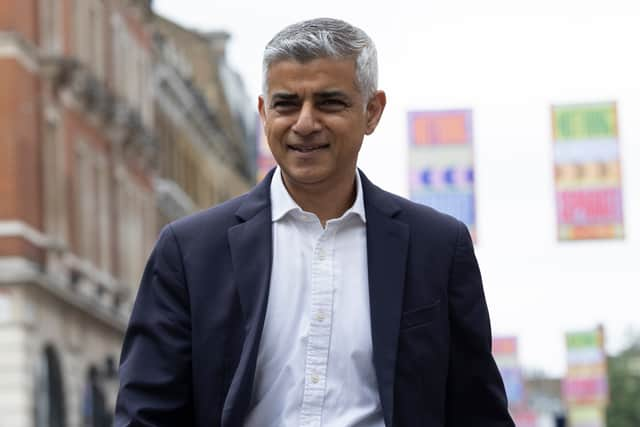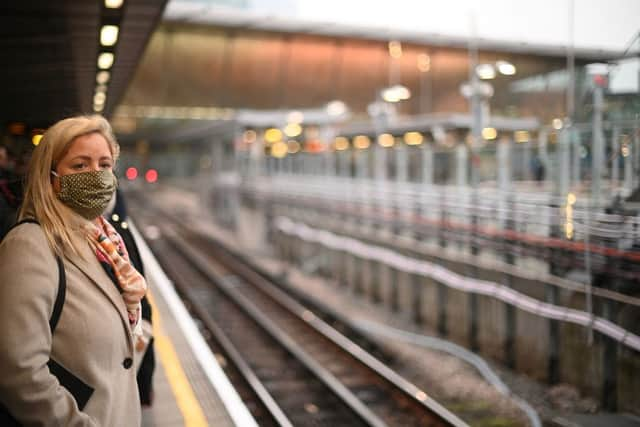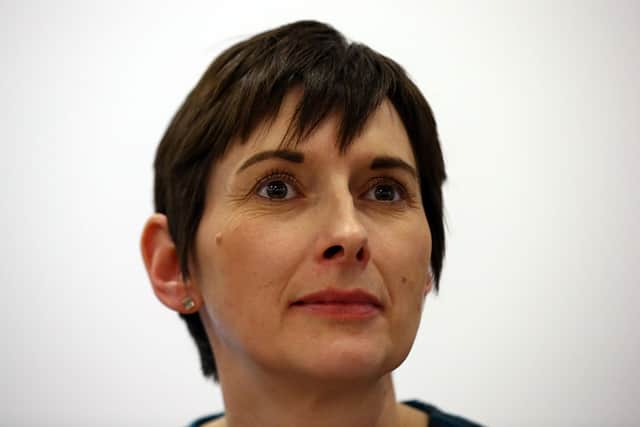TfL fare hike: Bus and Tube prices to rise by 4.8% - the biggest increase in a decade
and live on Freeview channel 276
Tube and bus prices are set to rise by almost 5% on average in just two weeks, the mayor of London has announced.
Transport for London (TfL) fares will rise by 4.8% overall from Tuesday, March 1 2022, which is expected to rake in an additional £151m for the pandemic-hit service.
Advertisement
Hide AdAdvertisement
Hide AdThe price hike is the biggest rise in a decade, which City Hall says is needed to help the operator reach financial sustainability by April 2023.
It comes amid a crisis in the cost of living, with Londoners shelling out more for energy bills, food, National Insurance and fuel - as inflation soars and the income tax threshold is frozen.


While poverty campaigners have criticised the government for refusing to cancel the £20-a-week uplift to Universal Credit, which they slammed for causing “immense hardship”.
The move is the second annual increase after Mr Khan froze fares for his first four years in office, from 2016 to 2021.
Advertisement
Hide AdAdvertisement
Hide AdThe Labour mayor said TfL had been “forced into this position by the government” but that he had done “everything in my power to keep fares as affordable as possible”.
The rises include:
- Pay as you go Tube fares in Zone 1 increasing by 10p to £2.50;
- Bus and tram ‘Hopper’ fares (multiple trips within one hour) going up by 10p to £1.65;
- Daily bus and tram caps rising by 30p to £4.95, the same as three single fares;
- The daily cap on multiple pay as you go Tube trips increasing by 3.8%;
- An increase of 80p to the minimum cash fare on the Tube, taking it to £6.30;
- And Emirates cable car trips rising 25% to £5, and return tickets no longer sold.


City Hall says the increase meets conditions on continued short-term funding agreements by the government, which has bailed it out twice after revenue fell during the Covid-19 crisis.
TfL is currently negotiating a new long-term funding settlement with the Department for Transport (DfT).
And the operator is warning that the rise won’t prevent the threat of a managed decline if it is unable to agree a funding deal with the government.
Advertisement
Hide AdAdvertisement
Hide AdIn the eight years prior to 2016, under then-London mayor, Boris Johnson, TfL fares rose overall by more than 42%.
Mr Khan said: “Public transport should be affordable to all, and I’ve taken bold action to ensure this since I became mayor by introducing the unlimited Hopper bus fare and freezing all TfL fares from 2016-2021 - saving the average London household over £200.
“Since TfL’s finances were decimated by the pandemic, the government has set strict conditions as part of the emergency funding deals to keep essential transport services running in London.
“We have been forced into this position by the government and the way it continues to refuse to properly fund TfL, but I have done everything in my power to keep fares as affordable as possible.”


Advertisement
Hide AdAdvertisement
Hide AdWhile Shashi Verma, strategy director at TfL, said: “This fares package aims to keep fares as affordable as possible while still ensuring TfL can continue to run clean, green and safe services and support London’s continued economic recovery.
“Through daily and weekly capping, as well as the Hopper fare and our wide range of concessions, passengers can continue to get the best value fare by using pay as you go with contactless and Oyster.”
Caroline Pidgeon, chairman of City Hall’s transport committee, said: “This announcement will be of little comfort for passengers now facing even higher fares, especially many low-income bus passengers.
“However, given the terrible financial position facing TfL and the straitjacket being imposed by the government it is sadly inevitable.”
Advertisement
Hide AdAdvertisement
Hide AdShe added: “While the PM is on his ‘levelling up tour’, a desperate bid to distract from a scandal-ridden Downing Street, his government forces the largest fare increases in London for a decade.
“Many Londoners can't afford these rises and levelling down London like this will impact the whole UK economy.”
For more information, visit www.tfl.gov.uk/fares
Comment Guidelines
National World encourages reader discussion on our stories. User feedback, insights and back-and-forth exchanges add a rich layer of context to reporting. Please review our Community Guidelines before commenting.
